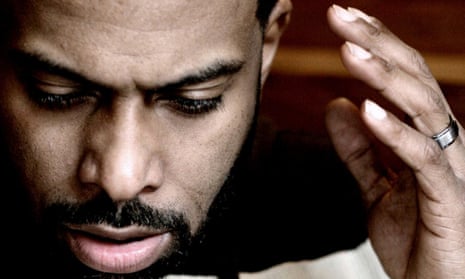The Detroit deep house veteran Theo Parrish has released a statement condemning the dance music world for its lack of support for the Black Lives Matter movement in the wake of recent incidents of police brutality in the US.
In a Facebook post, the musician said that he was “overwhelmed” and “embarrassed at the lack of overt commentary from this art form”.
Written amid protests in both the US and UK following the deaths of Alton Sterling and Philando Castile, Parrish’s post goes on to question dance artists who perform their music, “when on the same weekend you’re playing, in the same city, a man just like you has quietly, arbitrarily, been silenced by one paid to protect him and the public?”
He concludes his statement with a final call to arms:
How do you dance when we still swing from trees, when we still are murdered in front of our loved ones, murdered while subdued and harmless? How do you dance when our very image as a people is used to manipulate sympathy for a system of belief that wants you and your children to be dead or in jail? You better. You better learn to listen with your body, you better play from your heart. It was a preference before, now it’s essential. Escapism has always been an adjective used to describe the dance. That’s an outsider’s view. Solidarity is what it really offers …
Parrish also uses his post to express how he is struck by the apathy from house artists given how the genre’s lineage is “rooted in reaction to racism, birthed in struggle”.
While now often regarded as a preserve for hedonists, house music’s origins lie in uniting communities who felt ostracised from mainstream American culture, the genre especially embraced by black and LGBT crowds. Frankie Knuckles famously described the Chicago Warehouse club in which the genre was founded as “a church for people who have fallen from grace”.

Comments (…)
Sign in or create your Guardian account to join the discussion